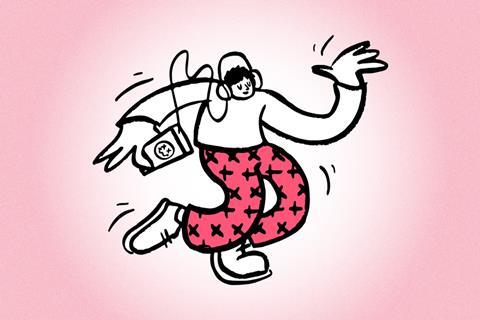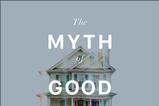Kate Orson reflects on the sometime subtle but ever powerful effect that music lyrics can have on our children

Secular music is full of all kinds of messages that have the potential to lead young people astray. From lyrical references to sex, drugs and violence, to the risks of idol worship, parents can feel powerless in the face of a song with a good beat and a catchy tune.
Should we be concerned about the spiritual effects of secular music on our children? How should we talk to them about what they listen to and help keep them on the narrow path?
Firstly as parents I think we need to be informed. What are our children listening to and what are the lyrics? What are the music videos like? I hadn’t listened to pop music since I was a teenager and when I started learning about it, I was shocked at how sexualised the videos have become. As well as the obvious red flags like promoting sex before marriage, I think it’s also important to look at how ‘spiritual but not religious’ beliefs are being promoted through high profile singers. For example Taylor Swift has a song called ‘Karma’ and has said in an interview that she believes in the concept. Singers are also promoting anti-Bible and anti-Christian views. For example, in a pro-abortion song, Swine, Demi Lovato claims that our right to choose to end a life is more important than the Bible.
When a five year old dances around to Katy Perry singing about wanting to end her life, does it matter? Young children probably don’t hear the lyrics or understand them. However when we look at the Bible we see that music is a powerful, spiritual force. It was David playing the harp that drove out Saul’s demon in 1 Samuel. 16-14-23. In 2 Kings 3.15 it was after a minstrel played that Elisha prophesied. It’s clear from the Bible that music influences our souls even when there are no words.
Demonic influence
I found the testimony of Joe Schimmel from Good Fight Ministries particularly eye opening. As a teenager he wrote rock songs while also being involved in new age practises such as lucid dreaming. He sang about how he loved rock n’ roll so much he would give his family’s souls to the devil. It was only later when he became a Christian that he realised how there had been demonic influence on his music. Schimmel’s testimony and work have showed me it matters what a singer/songwriter believes and what spiritual practises they take part in. I think this is something we should research as well as the songs themselves.
For example, the artist Pink has said in a BBC interview how much she loves native american spirituality, Paganism and Buddhism and thinks organised religion is one of the top problems of the world. She has also stated that if you are against abortion you shouldn’t listen to her music.
Finding a balance
When I spoke to parents while writing this article, there was a sense of trying to strike a balance between allowing freedom, while also having limits. For example, one friend bans the artists she sees as the ‘worst offenders,’ such as Sam Smith, who dressed as the devil at the Grammys. She always explains why.
With young children we have full control over what they are exposed to and as children get older, it becomes harder. Outright banning can lead to rebellion and if our children go to a friend’s house there might be completely different rules.
One answer lies in prayer. Through God’s guidance we can take a spirit-filled approach and resist acting out in the flesh.
Asking the Holy Spirit to guide our communication can help. In learning as much as we can about how the music industry works, what exactly our children listen to, and then talking openly about it. With all of the information we can decide where the limit is and how best to approach the subject.
Monitoring your child’s listening could come through looking at their internet history, but also through conversation. Through talking and listening without judgment we can create a safe space for children to open up, to share what music they and their peers are enjoying.
It can be easy to respond from our flesh as the subject is so emotive, but it’s when we refrain from judgment, and saying too much that our children may feel safe to share. From that sense of trust we can talk to them, giving them as much information as seems necessary to have an informed choice about what they are listening to.
As I write this article the UK top 20 includes the song ‘Paint The Town Red.’ Doja Cat sings about the devil and dresses up as him. While it can truly seem like the end times with music becoming so dark and depraved, music can actually be a powerful tool to point us to the truth; Jesus Christ. If Jesus wasn’t ‘the way, the truth and the life,’ then Satan wouldn’t be so keen on finding any doorway he can to make his presence known via the airwaves.
I’m always conscious of the need to to launch a ‘counter-attack’; playing my favourite Christian artists in the kitchen, or when we’re driving in the car. I love listening to different musical interpretations of the Psalms from musicians like Poor Bishop Hooper and Sandra McCracken. While the influence of the world can feel all consuming, the power of God and his word is so much more.


































